| |
Basic Black and Pearl
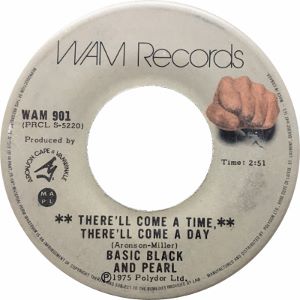
There'll Come a Time, There'll Come a Day / He's a Rebel - 7"
WAM - 1975
Michael Panontin
|
Though it may seem that she was born to sing or that singing was in her blood or some other overused platitude, in Sharon Lee Williams' case, it would be a lie. "I wanted to act or be a fashion designer," the Montreal-born singer told deejay Bill King. "My mother used to shove us on this French radio show in Montreal called Call Me Uncle. My sister and I would sing 'He's Got the Whole World in His Hands', we'd always win and I hated every minute of it."
But what Williams did have was a flair for the dramatic. And it was on the set of Hair that she hooked up with producer Leon Aronson, who would eventually convince the young actress to sing for him. "[Basic, Black and Pearl] was more of a studio project featuring myself on keys, Bobby Cohen on guitar, Marty Simon on drums and David Nash on bass", he wrote on the Vente de Garage site, "[and] the lead singer was Sharon Lee Williams. We were actually in the Montreal production of Hair. I was the musical director/band leader and she was one of the stars of the show."
Aronson worked with a number of Canuck stars of the day, like the Bells, Rene Simard and Renee Claude, but with disco floors packed to the hilt in mid-seventies Montreal, his ears turned south towards the r'n'b sounds emanating from the US. "I was always interested in black music such as Earth Wind and Fire and listened to a lot of jazz like Herbie Hancock," he explained. So the move from Quebec pop into disco/soul was perhaps not as incongruous as it seemed.
'There'll Come a Time, There'll Come a Day' came out on Aronson's newly formed WAM label in the late summer of 1975. The song, a cover of a little-known gem by Renee Claude, is driven by Aronson's supple keys and string arrangements but even more so by Williams' superb vocal performance. By rights, it should have been a dancefloor-filler the world over. But it was only ever available as a seven-inch - this at precisely the time that Tom Moulton was revolutionizing disco music with the 12" format - and so by the first week of October, it had only managed to reach an anemic #74 on the RPM charts.
That didn't stop WAM's distributor Polydor from planning a worldwide release for the record. The September 27 issue of RPM reports that plans were underway for "the States, the U.K., Mexico, Holland and South Africa". To date, diggers have unearthed an American pressing on Polydor and a UK one on Bus Stop, as well as a smartly-sheathed Italian copy issued the following year in 1976.
Whether 'There'll Come a Time...' was ever spun in those places is anyone's guess. New Yorkers back in the day definitely got the memo, with one YouTube commenter boasting that "I used to play this song as part of my nightly repertoire when I was a New York disco DJ back in the 70s...great tune to hustle to!"
As for Aronson and Williams, they would eventually veer off from the traditional recording industry, with Aronson finding success writing for TV and film and Williams singing jingles in the ad business. Strangely, though, after all these years the coveted modern soul of 'There'll Come a Time, There'll Come a Day' is noticeably absent from either of their online resumes.
|
|
Suggestions
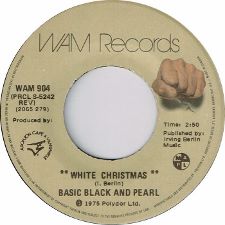
Basic Black and Pearl
White Christmas / Right On Baby - 7"
WAM
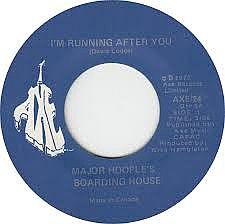
Major Hoople's Boarding House
I'm Running After You / Questions in Mind - 7"
Axe
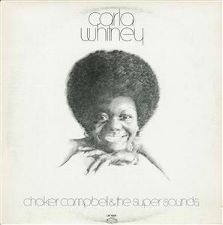
Carla Whitney
Carla Whitney (with Choker Campbell and the Super Sounds)
Attic
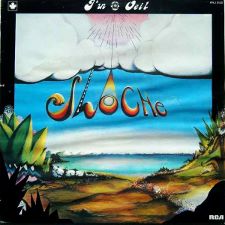
Sloche
J'un Oeil
RCA
|








